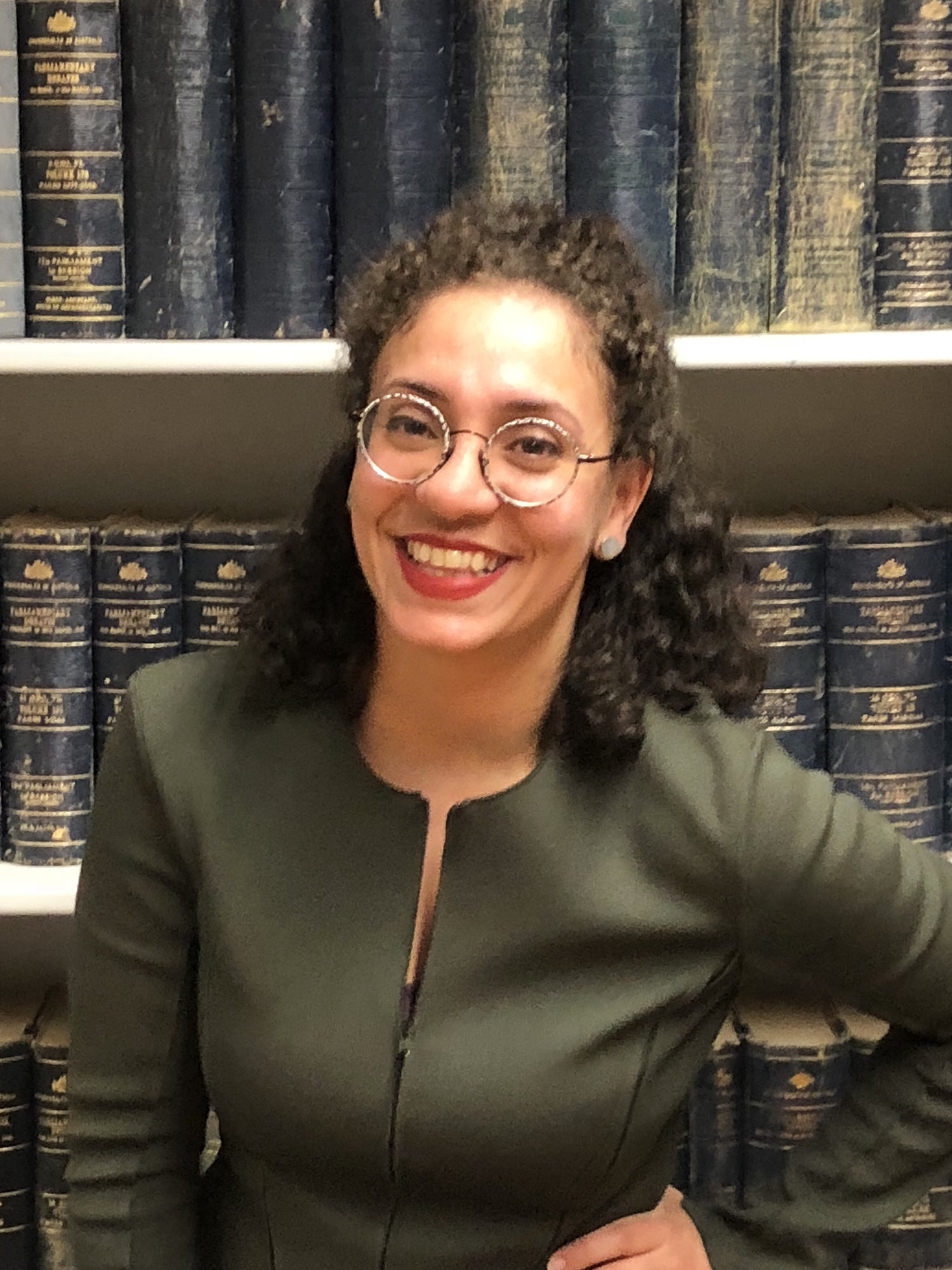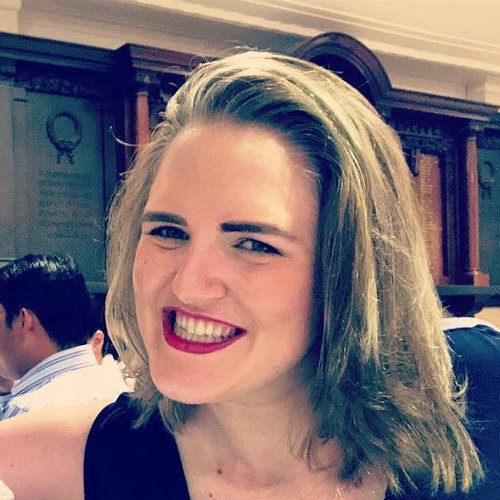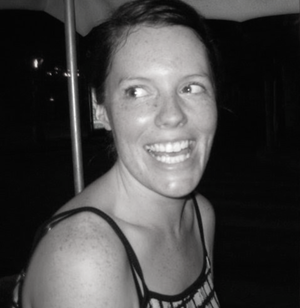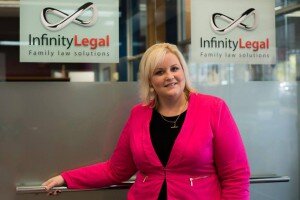WLA ACT recently caught up with current committee members of The Women in Law Organisation (‘WILO’) to learn a bit more about them and to chat about some success stories from the program.
WILO runs a mentoring program which pairs women studying at the ANU’s College of Law with professional women in the legal sector. Tiffany Wilken, Phyllida “Phyllie” Behm, MacCallum Johnson and Amber Barney are the current committee members of WILO, having taken these leadership roles from the creators in 2017. Unfortunately, Amber was unable to join us for the interview.
Tell us a little bit about you
After moving from NSW to pursue a double-degree of Public Policy and Law, MacCallum works as a research officer at the ANU Strategic & Defence Studies Centre, is the Canberra Branch Director of Young Australians in International Affairs and is the Deputy Chair of Future Strategic Leaders Program at the Institute for Regional Security.
Tiffany moved from Western Sydney, NSW to complete her law degree at the Australian National University, she now works at Legal Aid ACT.
Phyllie is a Canberran who is in her fourth year of a combined Bachelor of Arts (philosophy)/Law. Phyllie works as an administrative and research assistant at Blackburn Chambers.
What attracted you to your current role with WILO?
Phyllie: I did the program in the Second Semester of 2016. Immediately after I completed the program, one of the women who set it up was looking for people to take over running the program. My mentor was nice and I thought “why not give it a go?” I was looking for a law curricular outside the competitions. As the program was organized by young women it seemed like a positive co-curricular I could be involved with. All of us were mentees in the 2016 program and came on board in 2017 and the women who started the program are now all off doing amazing things.
Tiffany: When I moved, my mentor was one of the first people I met in Canberra. Having that relationship made settling into Canberra life so much easier, and made connecting to the legal industry much smoother. I wanted to be able to match mentees and mentors who may also be new to Canberra and assist them in making those connections.
Phyllie: That’s one of the great things about the program, it is pretty flexible and we can match people based on their applications and what they might get out of the program, not just academic achievements. The program has grown a lot from around 30 mentors in 2017 to 60mentors in Semester One 2019.
MacCallum: Like Tiffany and Phyllie, I was a mentee with the first round of the Program. The calibre of the mentors was outstanding. When the opportunity arose to be involved in running the program I thought it would be a good way for me to contribute to letting others have the same good opportunity.
What are some success stories from the program?
Tiffany: I really enjoy the panel events. We will see a lot of students coming in stressed about their future career options but hearing the diverse stories of the panel members helps to alleviate that stress.
Phyllie: Yes, there’s a lot of stress regarding clerkships for students and it really helped with that stress when they heard that not one panel member had been involved in formal clerkship programs and are now very accomplished.
Tiffany: It definitely takes the stress off. Women studying are dealing with the pressure of working, trying to get experience, do extra-curricular activities and maintain good grades so it really helps the students to see and hear women who have been employed in the industry with or without doing all of these things.
Phyllie: One experience I enjoyed hearing was of a friend who ended up working for the same firm as her mentor. Hearing that story was great.. Having said that, success from the program doesn’t always mean, resulting in a job and I think there are a lot of stories we don’t hear as we don’t always get feedback.
Tiffany: Absolutely, not all relationships between mentors and mentees are the same and a lot of the good ‘success’ stories are private in that relationship.
MacCallum: Having initially been a mentee in this program, I like going to the end of semester celebrations and seeing women from different backgrounds intermingling and supporting each other. To me, that’s the success story of this program.
Tiffany: the end of semester celebrations see women students mingling with graduate lawyers through to partners. There is no standard mentor/mentee relationship.
Phyllie: The end of semester celebration is a really nice event where women lawyers from a wide range of backgrounds are able to celebrate with a cocktail, relax and mix without an agenda. It’s a special event for students, who don’t necessarily attend a lot of functions like this and it is nice to relax and mingle without an agenda.
What’s one bit of advice for mentors, or those looking to be mentors?
Tiffany: tell us if there is a problem. We will often hear after the program is over that mentors don’t want to pester their mentees, but have not heard from them at all.
Phyllie: Agreed, We have a shortlist so if a mentor is paired with a non-responsive mentee, there is someone else who will absolutely take the position. It’s also good to see mentors encouraging mentees to seek opportunities and apply for roles etc. they are interested in. We see mentees being really receptive to this.
Another point is that mentees really enjoy being able to attend their mentor’s workplace if an opportunity arises to do so.
MacCallum: I think mentees really appreciate open and honest advice as it helps them prepare for their future careers.
What do you personally enjoy about the program?
Phyllie: I really like being part of the program and the positive and supportive culture around the program.
Tiffany: I like helping to give students more exposure to the wider Canberra legal network through their relationships with their mentors.
MacCallum: I agree with Tiffany and Phyllie. It’s a nice connection in the group and to the broader student and legal community.
What distinguishes the WILO mentoring program from other student mentoring programs?
Phyllie: I think WILO is distinguished by being an organic and student run organisation.
Tiffany – The cocktail event at the end of each semester is special. We have had some really wonderful speakers join us at our cocktail events and it also gives mentors and mentees a great opportunity to mingle in a friendly environment.
Phyllie: Thinking about our speakers, we’ve been fortunate in that in the past we’ve been joint by judicial officers and law graduates who are now not practicing as lawyers. It’s great exposure for mentees to see the ways their careers can potentially develop.
MacCallum: the program is quite open to mentees from a range of backgrounds and stages in their degree. It’s not restricted by subject matter or the stage a woman is at in her degree, although we do preference later year students.
Phyllie: the program has been running for three years now and we expect to see that continue. It’s great having a program with such longevity.
The Women Lawyers Association of the Australian Capital Territory is proud to support the program and we encourage members who are interested in mentoring to sign up. Applications will open again in early 2020.
You can stay up to date with the program by connecting with them on LinkedIn or on Facebook.

























